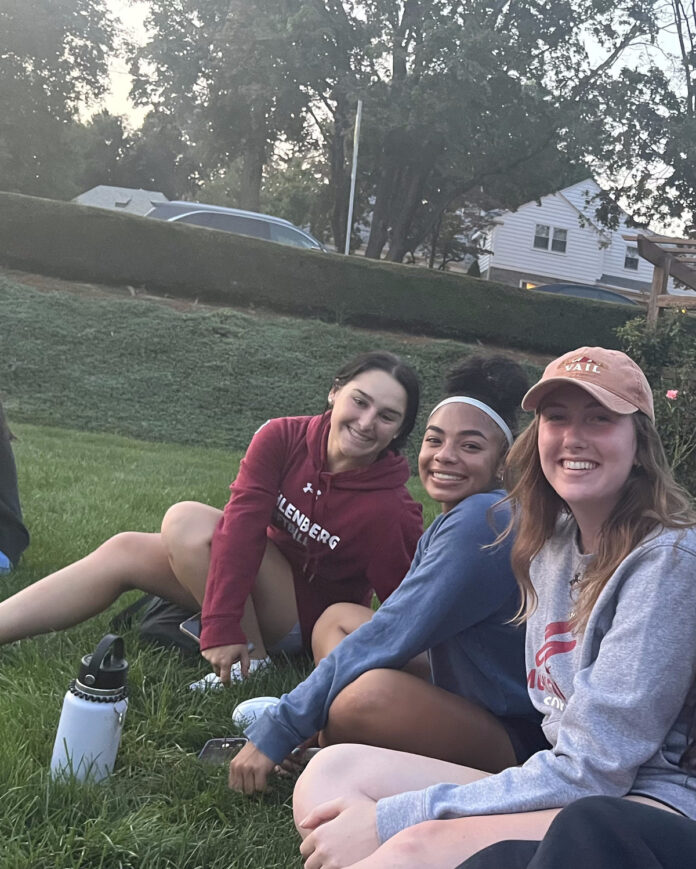Content Note: This article contains information surrounding suicidal ideation. If you are experiencing suicidal thoughts please seek help through on-campus resources such as the counseling center at 484-664-3178. For emergencies call 988.
This year alone the NCAA lost four collegiate athletes from suicide. The NCAA found that student-athletes are highly susceptible to depression due to the stressors of overtraining, injury, pressure to perform, lack of free time and/or stress from schoolwork. Approximately 30 percent of female collegiate athletes and 25 percent of male collegiate athletes report having anxiety. Collegiate athletes are twice as likely as retired collegiate athletes to struggle with depression. This isn’t only a trend we see in college athletes, 35 percent of elite/professional athletes report suffering from anxiety, depression, burnout and/or disordered eating and only 10 percent of collegiate athletes with known mental health conditions seek help.
On Nov. 6, Head in the Game held an open conversation between coaches and student-athletes to discuss mental health. The event created a safe space for athletes to talk with their coaches on how to facilitate conversations about mental health and athletic performance. Coaches also got the opportunity to ask the athletes questions.
The event aimed to help alleviate the concerns that both student-athletes and coaches may have about these conversations. “I didn’t feel comfortable talking to my coach until my junior year,” said Sara Fallon ’23. Fallon mentioned how vital it is to tell younger players on the team that it is okay to go to their coach about mental health issues or any problems an athlete is facing on or off the field.
There were 15 coaches and athletic trainers in attendance at the event. There was an honest conversation between athletes and coaches about what they can each do better to understand each other in terms of mental health. Chiming in on the discussion, women’s head soccer coach Dave Weitzman added, “We are learning as we go, some of that stuff was taboo back then, we are all trying to learn and develop ourselves as coaches”
“If a student-athlete goes to a coach, I haven’t seen any coach that wasn’t willing to listen. Winning and losing aside, relationships mean more to me with my athletes… At the end of the day, coaches want to see you succeed in life” commented men’s basketball coach, Kevin Hopkins.”
Athletes that attended the conversation found it reassuring to hear their coaches say that the relationships between coaches and players matters more than the athletes are aware of. “This conversation was one that flowed relatively smoothly thanks to the willingness of coaches to learn and the ability for student-athletes to educate others about how mental health should be approached in an athlete-coach relationship” said Kaitlyn Buurman ’25, mental health intern for the athletic department, first baseman of the Muhlenberg softball team and member of the Head In The Game executive board.
Rarely do coaches and athletes make the space to have this conversation because athletes see their coach as an authority figure, rather than a human being. Coaches mentioned that a constant thing they are thinking about is the fact that their athletes think their self worth is based on whether the coaches choose to play them or not. “I am the good guy until I have to make a lineup” says softball coach, Sarah Leavenworth. Until athletes create those personal relationships with their coaches, coaches aren’t really seen as people that their athletes can go to for support.
A major consensus was found between the athletes who attended the conversation–they will typically go to friends and family first about mental health rather than their coaches. After this conversation, coaches are hoping to see a shift in that.
“The most satisfying part of the job is not the wins and losses, it’s creating relationships with my athletes,”said track and field coach Brad Hackett.
Athletes reiterated to their coaches that they will not always be at 100 percent every day and made it known that even though a sport can help us get away from other stressors like school or work, it can be a stressor in itself. “Giving 100 percent of that 30 percent,” Buurman said. This means that if you feel 30 percent yourself, give all that 30 percent in practice.
“Progression in mental health acknowledgment will minimize the stigma of talking about vulnerability when it comes to being a student-athlete, and having coaches become part of this active conversation is something so special,” shared Buurman.
The next Head in the Game event is a conversation with parents which will be held on Sunday, Nov. 20th, at 7 p.m.






















